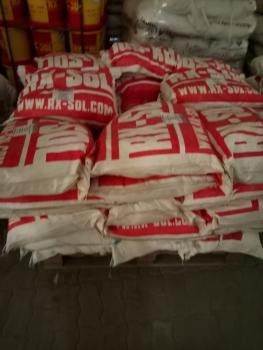Castor oil FSG is produced by refining commercial grade castor oil using bleaching and filtering processes.
Applications:
It is used as a key component in the pharmaceutical and cosmetic formulations
As a transducer fluid in sonar
As a dielectric material in electrical condensers
An integral component in coatings of vitamin and mineral tablets to serve as a lubricant
As a raw material for the production of value added derivatives from castor oil
Used in the manufacture of polyurethane casting resins
Reacts with styrene and diisocyanates to produce polymers and varnish components
In hydraulic fluids for automobiles, trucks and machinery
As Capacitor impregnate
As an ingredient for petroleum oil-field de-emulsification
Refined Castor Oil First S
Refined castor oil is extracted from Refined Commercial Grade Castor Oil that is produced by crushing the steam-cooked castor seeds of the expeller. F.S.G. Castor Oil is Castor Oil bleached to British Standard Specifications. Castor oil is a yellow viscous liquid free from suspended matter and insoluble in water. Refined Castor Oil is used as an essential component that serves as a lubricant in vitamin and mineral tablet coatings and as a raw material for the manufacture of value-added castor oil derivatives. The Refined Commercial Grade Castor Oil is processed by the bleaching and filtering method that helps to minimize the quality of colour, F.F.A (Free Fatty Acid) and moisture. Furthermore, Refined Castor Oil is used to manufacture other derivatives of castor oil and useful industrial products.Castor oil has long been used commercially as a highly renewable resource for the chemical industry. India is a net exporter of castor oil, accounting for over 90% of castor oil exports, while the United States, European Union, and China are the major importers, accounting for 84% of imported castor oil. Castor beans are cultivated for their seeds yielding a viscous, pale yellow non-volatile and non-drying castor oil. Castor beans, the source of castor oil, contain some allergenic (2S albumin) proteins as well as ricin; however, processed or refined castor oil is free from any of these substances and can be safely used in pharmaceutical applications. This can be attributed to its wide range of biological effects on higher organisms. Ricin is found exclusively in the endosperm of castor seeds and is classified as a type 2 ribosome-inactivating protein. Type 2 ribosome-inactivating proteins such as ricin from castor oil are lectins, which irreversibly inactivate ribosomes, thus stopping protein synthesis and eventually leading to cell death. This makes ricin a potent plant toxin.
Castor oil is a promising commodity that has a variety of applications in the coming years, particularly as a renewable energy source. As a source of biodiesel, recent studies showed that the biodiesel synthesis from castor oil is limited by a number of factors that include having the proper reaction temperature, oil-to-methanol molar ratio, and the quantity of catalyst. FSG Castor Oil finds applications in a variety of uses and is starting product for all others Castor derivatives. It is used as an ingredient in pharmaceutical and cosmetic applications, as lubricant component of coatings for vitamin and mineral tablets, as an ingredient for petroleum oil-field de-emulsification, as a sonar transducer fluid, in manufacture of polyurethane casting resins, and in hydraulic fluids for automobiles, trucks and machinery.














_0.jpeg)




